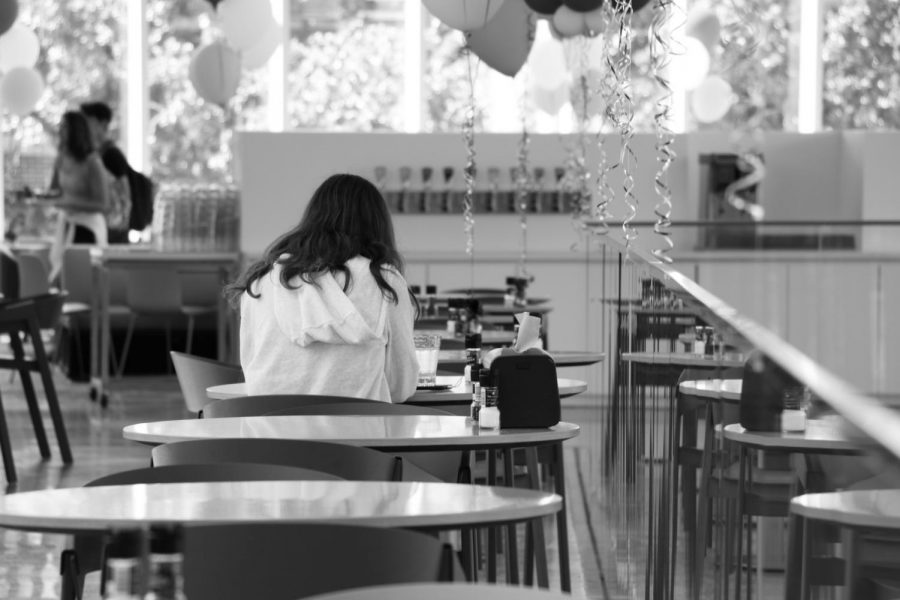Editorial: Tulaners: Friends not foes
A student eating at the new Commons dining hall. This is just one of the few things Loyola and Tulane share. Hannah Renton/the Maroon.
September 8, 2019
It’s time to call to call a truce in the feud of Freret Street.
Many of us came to Loyola having either toured neighboring Tulane University or having heard of its national reputation as a party school. We moved in, learning to give side-eye to our neighbors their, albeit, shiny new buildings and status as a “Southern Ivy.”
Whether out of envy or difference of culture, jokes at the expense of our wealthier neighbors have become engrained in Loyola culture.
While there’s many a standup routine that could be filled with frat row stereotypes and even, sometimes validated, satire about their culture and their now deceased dining hall Bruff, we have more in common with Tulane and its students than we may like to admit.
And it’s time that we do.
We all came to New Orleans looking for a fresh start, no matter how different our backgrounds, personalities, or choice of fashion may be, there is something to be said about the part of all of us that was drawn to the Crescent City.
On the outside it might seem like the only perks Tulane offers us are functional, in the way of a dining hall, extra police protection and an expansion of course offerings, access to these resources has led many of us to get to know Tulaners beyond the stereotypes we thrust upon them. And the same can be said by them about us.
It may be frustrating that it seems they have “discovered” Bruno’s Wine Wednesdays, but these nights, the marching band practices that have welcomed Loyola students and the campus events that they let us into for free have helped us create friendships, relationships and a fundamental understanding of the neighbors we often write off in bright green marker.
This is not to say that there are not fundamental differences between the structure and cultures of our universities. We are a Jesuit university that somehow has become a hub for students of color, first generation college students and SoundCloud rappers. They are a mainly white institution with a list of Greek Life organizations as long as Broadway Street.
But our desire to see them as only these things only perpetuates their desire to simplify us, who we are and what we stand for in the same way.
While many of us will always groan while driving down Broadway on a Tulane game day, there are also Loyola students in the stands and marching on the field cheering for the Green Wave.
While we may be frustrated with the grandeur of their new dining hall and our own university’s financial situation, we run into Tulane students while grabbing our morning STARBUCKS coffee and they give us directions when we get lost on their campus.
No one wants to be at The Boot when it’s empty, or alone on the Blue Line Shuttle at night. We have Tulane students to thank for not only their company, but for continuing to challenge us in how we see the world, ourselves and our city.







Ellen Byron • Sep 8, 2019 at 11:57 pm
Great editorial! I’m a Tulane alum and couldn’t be happier that our daughter attends Loyola. It’s a fantastic school with the kind of diverse population that Tulane dreams of. The two schools do need each other, especially these days.
Grant Dufrene • Sep 8, 2019 at 6:47 pm
How much did Tulane pay The Maroon to write this?